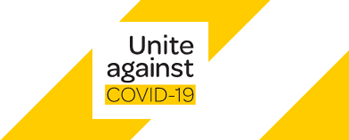What you need to know about
COVID-19 | Click here

What you need to know about
COVID-19 | Click here


Wednesday May 1, 2024 12:04
Earlier last year the previous Labour government quietly passed into law significant changes to the Health and Safety at Work Act – 2015 and associated regulations. In this second part of changes, we examine the recently introduced Health and Safety at Work (Adventure Activities) Amendment Regulations – 2023.
Following the Whakaari/White Island eruption on 9 December 2019, the Minister for Workplace Relations and Safety directed the Ministry of Business Innovation and Employment (MBIE) to undertake a targeted review of the adventure activities regulatory regime.
The work considered whether weaknesses exist in the adventure activities regime when adventure activities take place in “naturally hazardous” environments.
Adventure activities are activities which are paid for and involve the participant being guided or taught; They are designed to deliberately expose the participant to serious risk, and in which failure of the provider’s management systems is likely to result in serious risk to the participant’s health and safety, and the participant is deliberately exposed to dangerous terrain or waters.
Typical examples of adventure activities include:
| Abseiling (if done outdoors) Bridge swinging Bungy jumping Canoeing Canyon swinging Canyoning Caving |
Glacier walking High ropes course crossing, high wire crossing, or use of a zip wire Kayaking Mountaineering Off-road vehicle driving Quad biking or trail biking River boarding |
The changes focus on 4 areas:
1. Introducing specific requirements for how adventure activity operators must assess and manage natural hazard risks
2. Strengthening requirements for operators to communicate risks to activity participants
3. Stronger operator registration and notification requirements
4. Reviewing and updating adventure activity safety guidance.
The Regulation now requires stronger operator registration and notification requirements, and the changes are:
JAS-ANZ – The Joint Accreditation System of Australia and New Zealand – has developed a specific certification scheme in association with WorkSafe NZ and the adventure activities industry. WorkSafe NZ is the scheme owner.
The New Zealand Adventure Activities Certification Scheme has its own Safety Audit Standard that is accepted by the Regulator/Registrar – WorkSafe NZ.
Two Certification Bodies in New Zealand have been accredited by JAS-ANZ to provide these certified audits to date.
Further information is available from the JAS-ANZ and WorkSafe NZ websites at www.jasanz.org and www.worksafe.govt.nz
The new Coalition Government has indicated that it will review the Health and Safety At Work Act – 2015 to make employees as well as employers ( PCBU’S ) accountable and fairer for everyone. Given the tragic events that occurred on Whakaari/White Island, this is one part of the legislation that probably won’t be changed.
If you have any concerns around this topic or other Health & Safety matters, your Securo Consultant is available to help. We can also advise on hazard management and provide access to specialist health professionals who offer health monitoring services.
So please give them a call or you can contact Securo head office on 0800 55 33 44.
Parts of the information in this newsletter has been derived from guidance documents published by WorkSafe NZ which are available at www.worksafe.govt.nz and parts of the Health and Safety At Work Act – 2015.